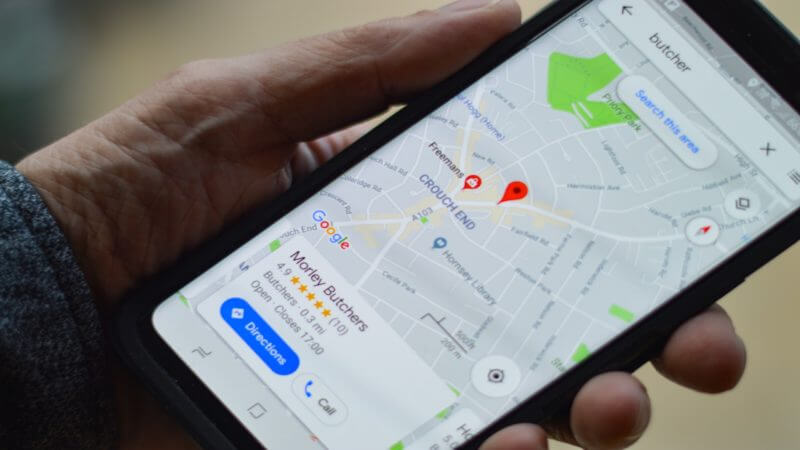Recent change in consumer behavior has put local search on the map.
Consumer behavior has fundamentally changed and put local search well and truly on the map. Due to restrictions on movement, more and more consumers realize the ease and opportunity of online search and purchase. Individuals want a tailored search view with results that are relevant to where they are at that very moment.
To win those conversions, your location-specific ads must be at the top of the search engine results page; it’s a competitive imperative.
Here are six tips every marketer needs to win local marketing with paid search.
1) Don’t rely on Google alone
Location targeting — through Google Ads, for example — marks a huge revolution for advertisers and marketers. It enables them to maximize their PPC by targeting ads to specific areas.
Yet, while this is certainly helpful, significant blindspots remain. The data provided by Google Ads and others isn’t as granular as it needs to be to do things such as monitor competitor strategies or uncover opportunities that may crop up. This is something that advertisers and marketers need to keep in mind when gathering comprehensive search intelligence to make their strategies as dynamic as possible.
It’s nearly impossible for advertisers to juggle national, state, and local demand manually or without the right data. Therefore, AI is a business imperative when it comes to succeeding in the local search market.
Resources: Covid is changing search: Here’s how to respond
2) Stay up to date with Google changes
Keeping up with the Kardashians is far easier than keeping track of the multitude of updates Google makes every month across its Shopping, PPC and SEO offerings. Not only is it difficult, but there is also a real necessity to remain ‘in the know’ about these updates because, as search markets demonstrate, even one missed update can dramatically and quickly send you plummeting down from position one.
This is why we’ve created a complete list of Google updates and expectations for the future. Learn how to react to these changes with Adthena’s Ultimate catalog of Google updates.
Resources: 5 key predictions for Google search; Adthena’s Ultimate catalog of Google updates
3) Set your local search strategy
In 2021, mobile devices alone will influence more than $1.4 trillion in local sales. With markets diversifying and competition not limited by physical geography to encroach on your search space, you must build momentum and identify new ways of growing your paid landscape. Quite simply: it’s vital to utilize the power of local search in your marketing strategy.
Local search advertising is moving at the speed of light, so it’s natural for advertisers to feel as if they need to jump in as quickly as possible and deal with any growing pains as they come. But in actuality, not having a game plan before jumping in can have far greater consequences.
Take the time to create a clear checklist of tentpole items that will build the ideal strategy for you. By identifying items such as current benchmarks, target search terms, ideal partners, and other foundational elements ahead of time, advertisers and marketers can build a much more effective strategy with far fewer gaps right from the outset. See Adthena’s Your Ultimate Local Search Toolkit for your ultimate local search checklist.
Resources: How to leverage the power of local search in your marketing strategy; Covid is Changing Search. Here’s How to Respond; Your Ultimate Local Search Toolkit
4) Tailor your local ads to win
72% of desktop or tablet users and 67% of smartphone users want ads customized to their location. Additionally, 82% of smartphone users search for businesses near them;90% click on the first set of results they see.
A major part of local search marketing is customizing your messaging & strategy to each location. Follow these five steps to creating click-winning location-based ads:
- Be there: Know where your products and services are most needed.
- Be relevant: Is your ad creative relevant and specific? Are you appearing at the right time?
- Be useful: Don’t be generic in your copy and CTAs. Each work must express your services and answer your questions.
- Be quick: Any delay in response to market and competitor shifts will set you back, no matter your size.
- Be top: Target the most relevant search terms in location. The closer you are to number one the greater the likelihood of a click.
Resources: Your Ultimate Local Search Toolkit
5) Take industry considerations into account
Given each industry and each business’s KPIs will have at least some differentiation, it isn’t necessarily surprising that Adthena’s customer research has revealed that location targeting tactics vary drastically across industries, sub-industries, and even individual businesses. Don’t settle on some sort of one-size-fits-all approach to your search. Instead, get as granular as possible.
To truly get the most out of your local search strategy, advertisers and marketers need to focus on their customers’ specific behaviors and local competitors. Moreover, advertisers and marketers need to adapt their creative and broader strategies in tandem to capitalize on any potential opportunities.
Simply put, having a scattershot approach in today’s local search ecosystem will likely result in a lot of wasted effort and spend. Additionally, given how sophisticated today’s search environment has become if you aren’t actively personalizing and adapting your search advertising content, your competitors likely are — and are stealing your business as a result.
The right location categories to focus on will depend on your business, your goals and your consumers’ behavior. For instance, Zip Code and DMA are more important for Auto than Finance.
ImageSource: Adthena customer research data 2019
Resources: Covid is Changing Search. Here’s How to Respond; Your Ultimate Local Search Toolkit
6) Get intel on how COVID-19 is affecting your local market
Origin Energy achieved a 15% increase in market share by incorporating intelligence into its local search strategy
Origin Energy recognized that each region presented distinct opportunities and threats. For example, each state has different operating tariffs that regulate messaging. And each region has its own consumer search patterns, sales targets and competitive players.
Origin needed the ability to map out the competitive landscape in each location. Using targeted location data, Origin’s agency, Atomic 212, benchmarked Origin’s share of clicks, impressions, and spend by region. Adthena made it easy to filter data and search term groups by geography and understand each state’s unique competitive landscape. The agency can see competitor moves and search trends state-by-state and allocate budget accordingly. And as local regulations change, Origin Energy can easily adapt its local ad messaging to stay compliant.



